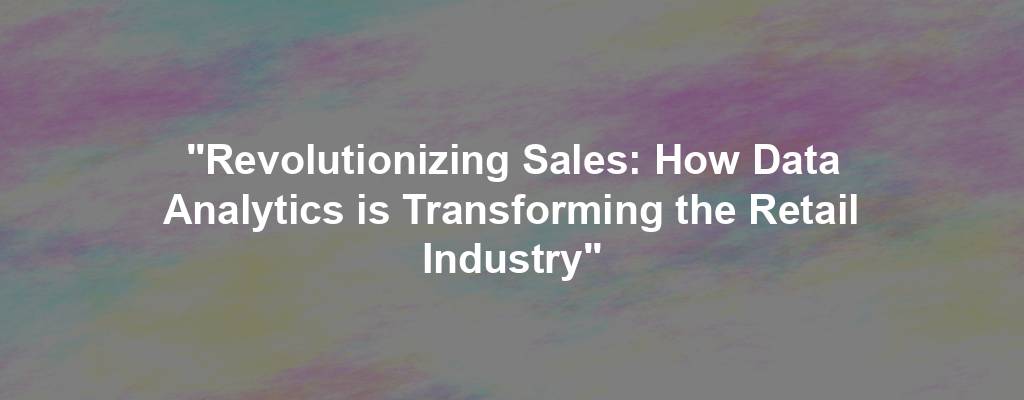Revolutionizing Sales: How Data Analytics is Transforming the Retail Industry
In today’s fast-paced and ever-evolving retail landscape, companies are constantly seeking ways to stay ahead of the competition and meet the demands of their customers. One of the key ways in which retailers are achieving this is through the use of data analytics. By leveraging data analytics, retailers are able to gain valuable insights into customer behavior, preferences, and trends, allowing them to make more informed decisions and drive sales.
Data analytics involves the collection, analysis, and interpretation of data to identify patterns and trends that can be used to drive business decisions. In the retail industry, this data can come from a variety of sources, including sales transactions, customer interactions, social media, and website analytics. By analyzing this data, retailers can better understand their customers, identify areas for improvement, and develop more targeted marketing strategies.
One of the key ways in which data analytics is revolutionizing sales in the retail industry is through the use of personalized marketing. By analyzing customer data, retailers can create targeted marketing campaigns that are tailored to individual customer preferences and behaviors. This not only helps to increase sales but also enhances the overall customer experience, leading to higher customer satisfaction and loyalty.
In addition to personalized marketing, data analytics can also help retailers to optimize their product assortments and pricing strategies. By analyzing sales data and trends, retailers can identify which products are performing well and which are underperforming. This allows them to make more informed decisions about which products to stock and how to price them, ultimately leading to increased sales and profitability.
Furthermore, data analytics can also help retailers to improve their operational efficiency. By analyzing data on inventory levels, sales trends, and customer demographics, retailers can better forecast demand, optimize inventory levels, and reduce costs. This not only helps to improve the bottom line but also ensures that customers are always able to find the products they want when they want them.
Overall, data analytics is transforming the retail industry by providing retailers with valuable insights into customer behavior, preferences, and trends. By leveraging this data, retailers can drive sales, enhance the customer experience, and optimize their operations. In today’s competitive retail landscape, data analytics has become a key tool for retailers looking to stay ahead of the curve and drive business growth.
Key Takeaways:
- Data analytics is revolutionizing sales in the retail industry by providing valuable insights into customer behavior and preferences.
- Personalized marketing campaigns can be created by analyzing customer data, leading to increased sales and customer loyalty.
- Data analytics can help retailers optimize their product assortments, pricing strategies, and operational efficiency.
By harnessing the power of data analytics, retailers can unlock new opportunities for growth and success in today’s competitive retail landscape.
Keywords: retail industry, data analytics, sales, personalized marketing, customer behavior, trends, operational efficiency, customer satisfaction, profitability, growth.





